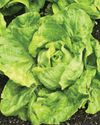
Sourcing fertilizer is one of the biggest concerns for farmers or homesteaders. Soil must be replenished and maintained yearly with fertilizers that are preferably chemical-free. While livestock manure often does the trick, not everyone wants the responsibility that comes along with raising big animals, especially if you live in an urban area.
Kyle and Jen Strickland, farmers and owners of Midwest Worms, believe that compost worms provide a way for urbanite and rural homesteaders to source a natural and powerful plant fertilizer right in their own home.
COMPOST WORM FERTILIZER BENEFITS
The main benefit compost worms provide is their fertilizer, which comes in the form of worm castings or what some people refer to as a gardener’s “black gold.” In simple terms, worm castings are worm manure. But unlike other manures, it does more than just fertilize your garden.
“Worm castings have an ability to retain higher quantities of moisture than soil, so when you add worm castings into your soil, your soil will naturally retain more water,” Kyle Strickland says. “Also, worm castings are good for the environment, which means it’s good for gardening. It’s better than any fertilizer you can buy. It’s 100% organic and natural.”
In his research, Strickland found that compost worm castings give plants a spectacular nutrient and immunity boost. “Basically, when a worm eats something and secretes it, the compost and worm castings have a high quantity of microorganisms and lots of nutrients and micronutrients for plants in it,” Strickland says. “[Compost worms] produce hormones that are scientifically proven to increase plants’ resistance to disease and increase their natural resistance to pests. It creates something in the plant that causes pests to be less attracted to the plants.”
Bu hikaye Hobby Farms dergisinin November - December 2024 sayısından alınmıştır.
Start your 7-day Magzter GOLD free trial to access thousands of curated premium stories, and 9,000+ magazines and newspapers.
Already a subscriber ? Giriş Yap
Bu hikaye Hobby Farms dergisinin November - December 2024 sayısından alınmıştır.
Start your 7-day Magzter GOLD free trial to access thousands of curated premium stories, and 9,000+ magazines and newspapers.
Already a subscriber? Giriş Yap

The RISE of Opportunist WEEDS
Be prepared to see increasing changes in weeds we fight, such as poison hemlock and poison ivy, and in the crops we grow.

LIVESTOCK Health
Prepare yourself for how to spot symptoms of illness in your farm animals so that you can get them help before it's too late.

CUT FLOWER Farming
If you're considering growing flowers for sale, brush up on these five key things to know before diving in.

WINTER Survival
Keep your land, animals and yourself in good shape this winter with this helpful advice.

COVERAGE CONCERNS
Avoid common insurance mistakes for rural and hobby farm businesses.

FARMER'S GUIDE Berries
Set the stage for tasty strawberries, blueberries and brambles with these soil-boosting garden tips.

Preconditioning CALVES
Follow our step-by-step guide to get more money for your calves.

Soil Conservation
Often, outside of having a specific problem that needs to be addressed, soil conservation isn't something every farmer readily thinks about. Yet conserving the soil should be at or near the top of every farmer owner or manager's list of concerns because absent the prevention of soil erosion, we have the opportunity for another dust bowl.

Year-Round Lettuce & Salad Mixes
It's easy to think of salad greens as just a spring- or fall-garden crop, but it's possible to enjoy freshly harvested lettuces, mustards and more from your own garden year-round.

Barn Improvements
Days are never long enough for a farmer. From dawn to well into the night, tasks arise that often require immediate action. Having to search for tools or equipment is an enormous time waster and incredibly frustrating when you can't find what you need, especially when you know you have it.